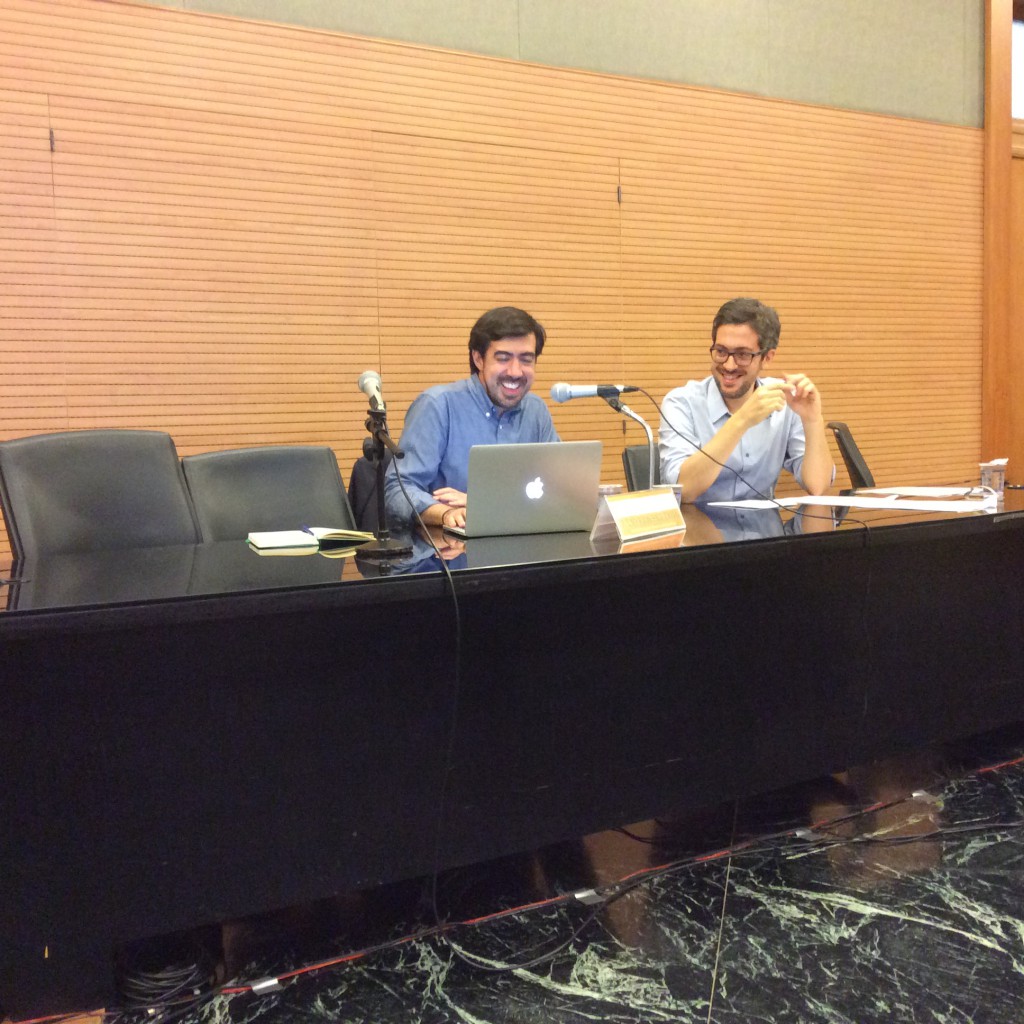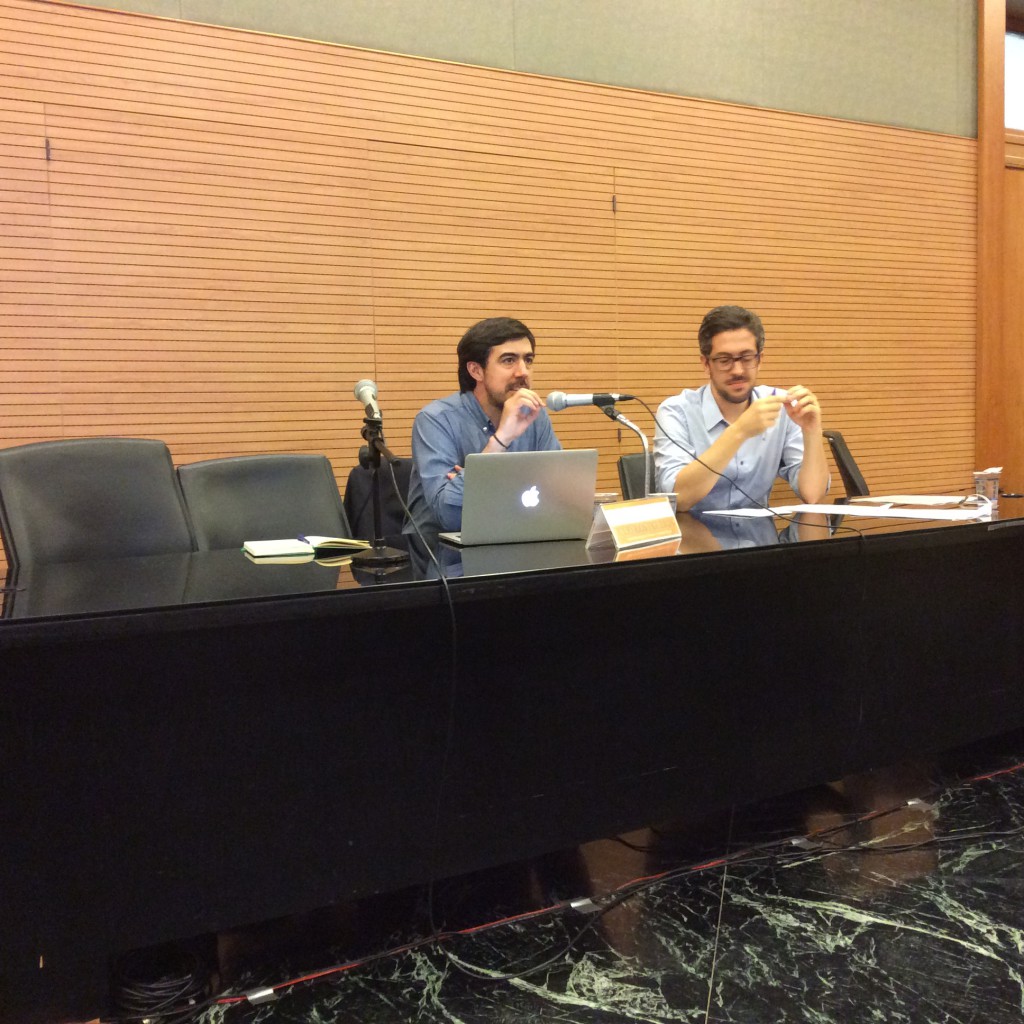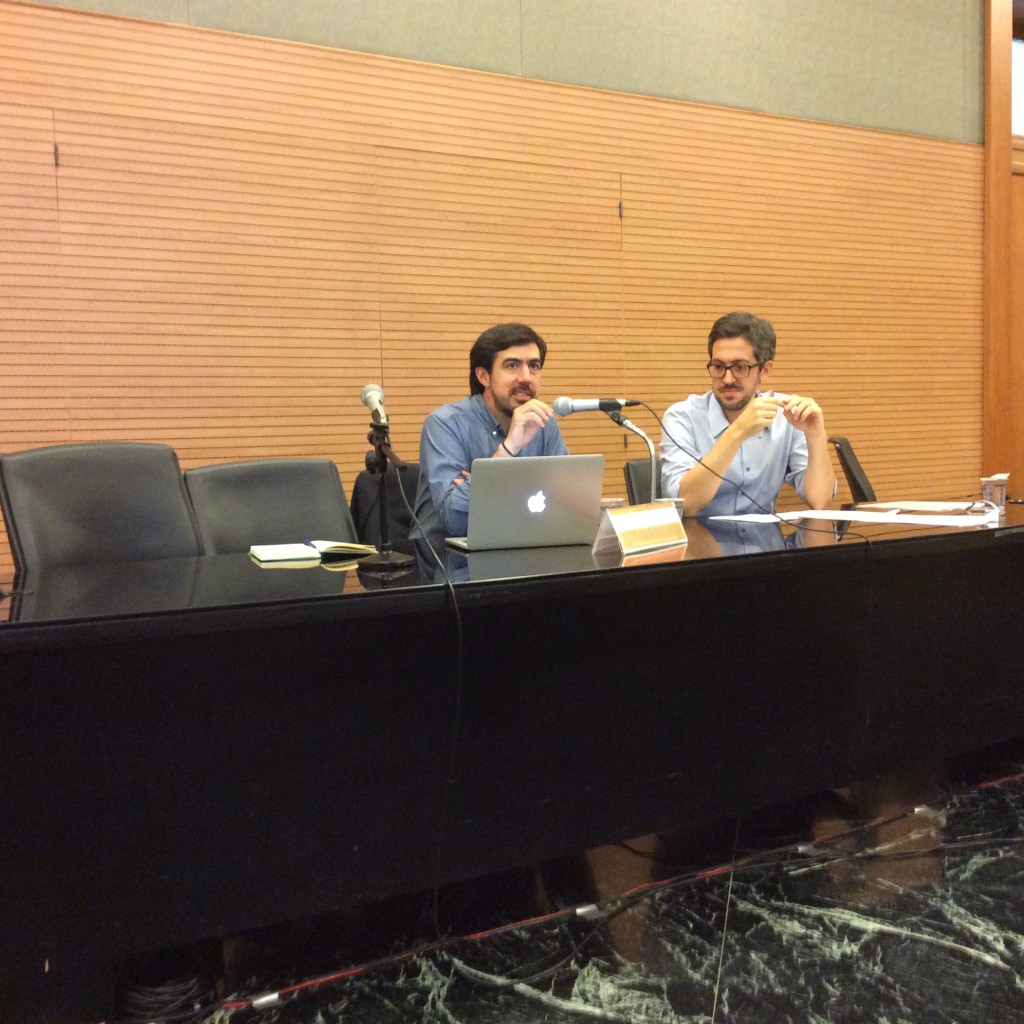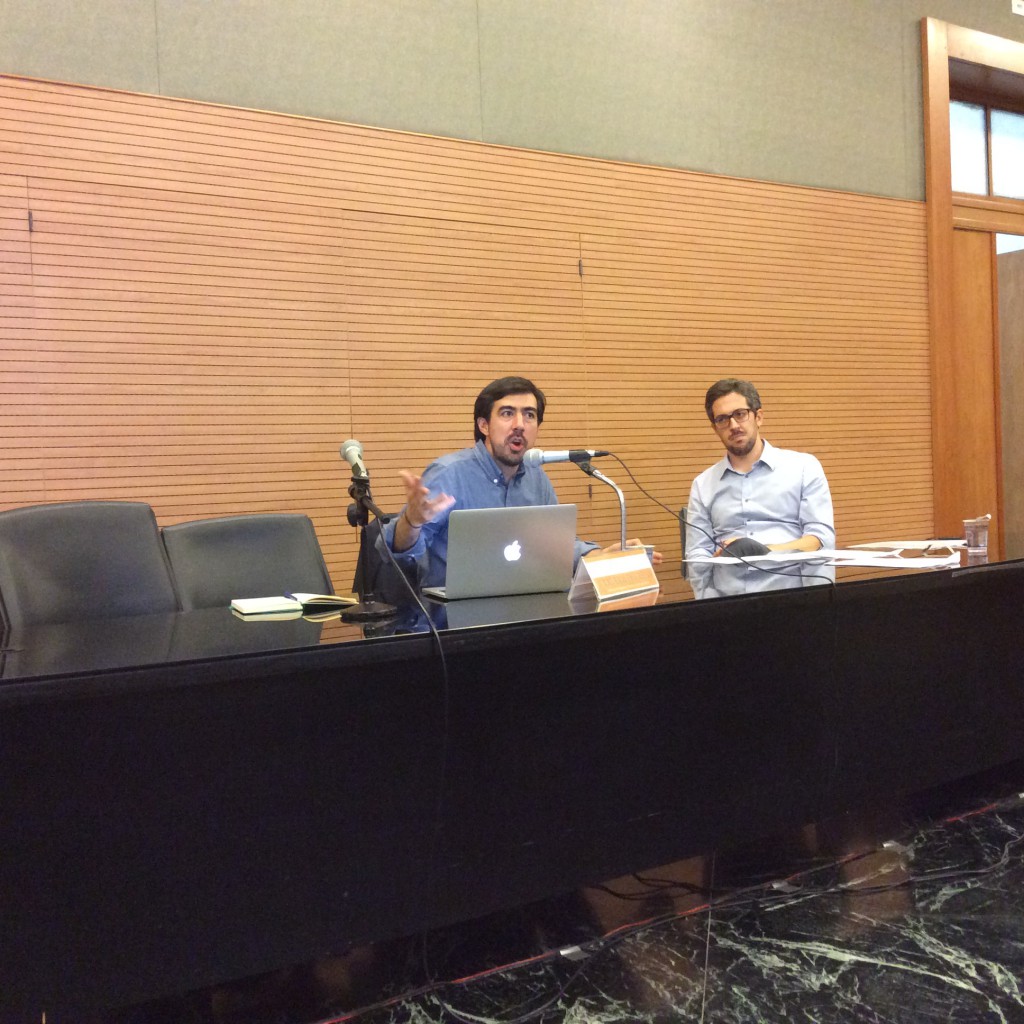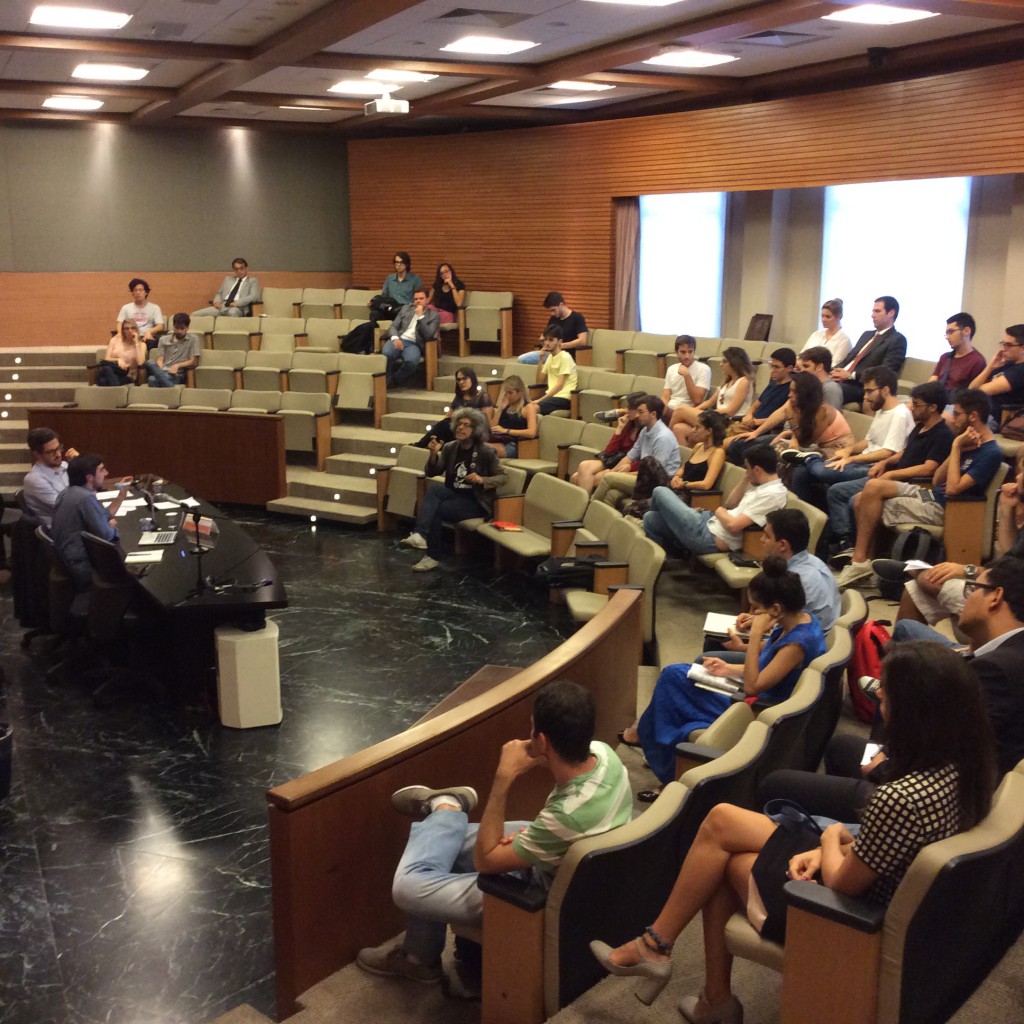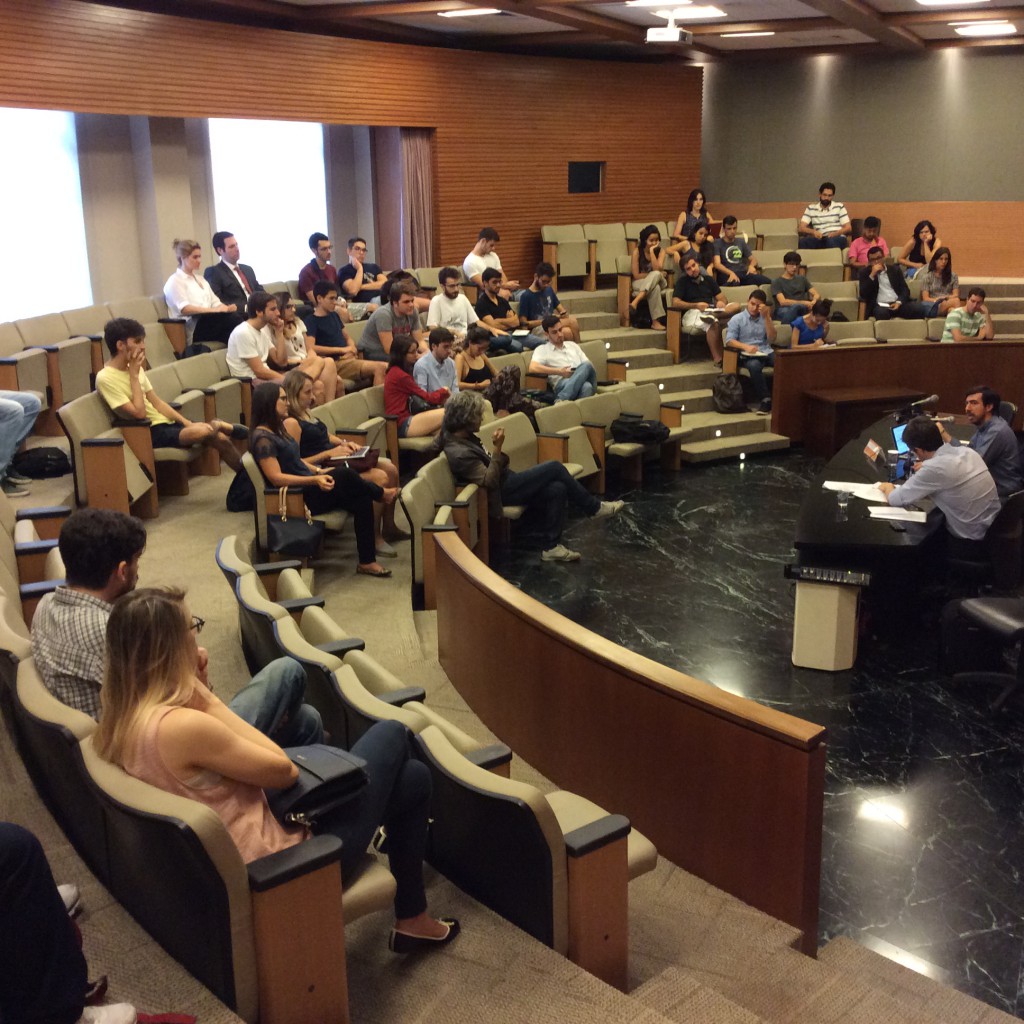On April 20th, the series International Dialogues in Constitutional Law hosted Julio Rios-Figueroa, political scientist specialized in constitutional courts and Professor of the Centro de Investigación y Docencia Económicas (CIDE, Mexico). Rios-Figueroa approached the topic of “Constitutional courts and democratic conflict solving”, based on his recently published book by the Cambridge University Press. In his research, he discusses the role of constitutional courts in the legal understandings of civilian-military relationships within the democratic governments of Colombia, Mexico, and Peru. Based on extensive empirical evidence, he argues that when constitutional courts are independent, accessible, and have broad constitutional review powers, they better fulfill their role as ‘mediators’ of the confrontational governmental relationships with the armed forces. Unlike ‘arbitrators’, that solve distributive conflicts and generate winners and losers, ‘mediators’ are more effective in stabilizing those relations.
Category: dialogues reports
Amy Allen (Penn State University), Utopia and Feminism
In: 2016, dialogues, dialogues reports
First meeting of the 2016 International Dialogues on Constitutional Law series discusses gender relations and empowerment
In the first event of the 2016 International Dialogues on Constitutional Law series, which took place on March 10th, the Group “Constitution, Politics and Institutions” received Amy Allen, Professor of Philosophy and of Gender and Sexuality Studies at Penn State University.
In the lecture “Utopia and Feminism”, Allen presented her thoughts on power relations, emancipation and feminism in contemporary society, which result from the tense and unusual conciliation between two theoretical references: the critical theory model of the Frankfurt School and the concepts of Michel Foucault and Judith Butler. Allen characterizes her theoretical project as a productive tension that allows refining the diagnosis of how gender relations operate, shedding light on its complexities, helping to understand the intersections between gender and other social markers of difference. Furthermore, the project aims at conceiving the idea of emancipation without resorting to the idea of utopia, which would presuppose a notion of progressive and Eurocentric historical development.
Following her opening presentation, different topics were discussed: the relation between Allen’s concept of emancipation, social struggles and their political motivations; electoral gender quotas; male role in feminism struggle; the International Human Rights Law. How to identify power relations and gender domination empirically was also a matter of concern. Amy Allen concluded the debate by stating that her conception of emancipation, inspired by post-colonial feminists, allows for the questioning of our own narratives of progress and modernity. Thus, her views would provide deeper self-reflection, epistemological humility and solidarity.

